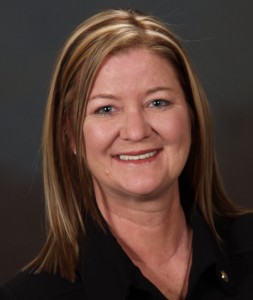SURVEY SHOWS A ‘SILENT EXODUS’ OF PHYSICIANS
By Kelley Dunn, Senior Director with Merritt Hawkins // February 11, 2013
Physician Workforce
EDITOR’S NOTE: It is a pleasure to welcome Kelley Dunn, Senior Director of Marketing at Merritt Hawkins, one of the premiere physician search and consulting firms in the U.S, back to Space Coast Medicine and Active Living magazine and SpaceCoastDaily.com as a guest columnist to provide an update on the “state of the union” of the medical profession.
More than 1,100 Florida physicians were part of the 13,557 survey responses in the Physicians Foundation Survey of American Physicians:Practice Patterns and Perspectives. When asked about their feelings regarding the current state of the medical profession, over 73 percent described their feelings as negative; and when asked if they thought the medical profession was in decline, over 75 percent agreed that it was.
Over 67 percent of Florida physicians participating in the survey said that they were less positive about the direction and future of healthcare in America because of the passage of the Patient Protection and Affordable Care Act, also known as Obamacare.
ATLANTA, GEORGIA–Physicians are leaving medicine en masse at the very moment when healthcare reform is poised to extend health insurance to some 30 million additional people.

That is one conclusion of a national physician survey conducted by Merritt Hawkins for The Physicians Foundation a non-profit group of physician and medical society leaders of which the Florida Medical Association is a member.
Survey Measures Physician Morale and Plans
The survey report runs to 127 pages and includes over one million data points. It is comprised of responses from some 14,000 physicians to 48 questions, many of them featuring multiple response categories. The margin of error of the survey as determined by statistical response experts at the University of Tennessee is less than one percent.
A Survey of America’s Physicians: Practice Patterns and Perspective is an ambitious attempt on the part of The Physicians Foundation to provide a “state of the union” of the medical profession, examining the current morale levels of physicians, their practice metrics and their practice plans.
‘Silent Exodus’ From Traditional Practice Of Medicine

What the survey reveals is both startling and sobering:
- Physicians are working 6% fewer hours than they were four years ago, resulting in a loss of over 44,000 full time equivalent (FTE) practicing physicians nationwide.
- Physicians are seeing close to 17% fewer patients per day than they were four years ago, a reduction of over 100 million patient encounters.
- Physicians spend more than 22% of their time on non-clinical paperwork, resulting in a loss of some 165,000 FTEs.
- Physicians are disillusioned with the practice of medicine – 84 percent believe their profession is in decline.
- The majority of physicians – 57.9% – would not recommend medicine as a career to their children and over 60 percent would retire today if they could.
Survey results point to a “silent exodus” of physicians from medicine. Doctors may not yet be retiring in greater numbers than in the past, but they are practicing in such a way as to significantly reduce total physician FTEs. Over fifty percent of physicians surveyed indicated they plan to alter their practice style in the next one to three years, by working part-time, accepting hospital employment, cutting back on patients seen, converting to concierge medicine, or working locum tenens. All of these options tend to reduce the number of patients physicians see or the number of hours they work.
Less Pay And More Time-Consuming Administrative Tasks Plague Physicians
Why are physicians changing their practice patterns? The survey suggests that doctors are seeking alternatives to traditional modes of practice in response to a problematic medical practice environment characterized by declining reimbursement, increased paperwork, malpractice risk, and loss of clinical autonomy.

Physician practice patterns are changing at a time when the nation’s clinical workforce will be challenged to meet demand for services generated by millions of newly insured patients. Declining access to physicians, already a pressing concern in many communities where doctors are in short supply, is likely to become a more widespread challenge as demand for physicians increases while the net number of doctors decreases.
The complete survey report is available on The Physicians Foundation’s web site at www.physiciansfoundation.org. It makes compelling reading for anyone concerned about the state of medical profession and the future of medical practice in America.
ABOUT THE AUTHOR

Kelley Dunn is Senior Director with Merritt Hawkins, the leading physician search and consulting firm in the United States and a company of AMN Healthcare (NYSE: AHS). She earned a double major in Biology and Chemistry from the University of Georgia, a Masters degree from Florida Atlantic University, and is currently a faculty instructor with the University of Florida. With over 8 years of healthcare staffing experience, Kelley has consulted with over 2,000 clinics and hospitals in Florida. She can be reached at Kelley.dunn@merritthawkins.com












